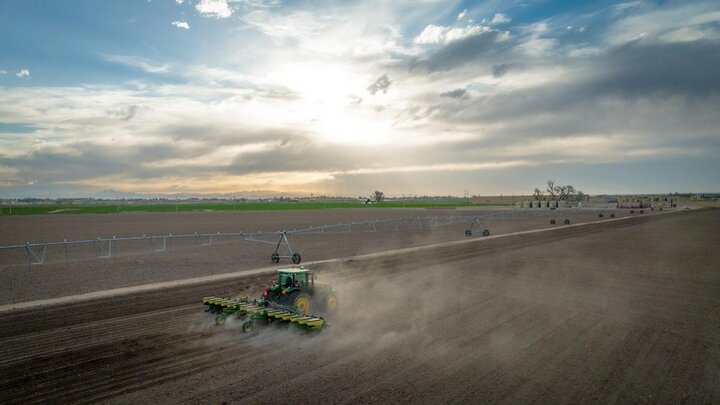What are the characteristics of a good farm manager? Some argue that managerial success results from a conglomeration of several factors including a good combination of strategic planning and decision-making ability[1]. Educational efforts to promote strategic planning principles among agricultural producers have been numerous over the years. However, strategic planning takes time and considerable effort to complete. Many producers find it difficult to do and question the value of doing it.
Peter Nuthall surveyed New Zealand farmers in 2000 and 2001, asking them to score the importance of several managerial attributes[2]. In a rank-ordering of 15 attributes, having a clear understanding of the family’s objectives, values, and goals was the highest-ranking attribute directly associated with strategic planning principles. It ranked sixth, just behind being able to quickly analyze and sort out new situations. Developing appropriate and detailed plans for both short- and long-term horizons ranked even lower, coming in ninth on the list. This suggests farmers do not prioritize strategic planning compared to monitoring current conditions and being able sort out what to do quickly.
Studies to assess the usefulness of strategic planning tools to agricultural producers are lacking[3], even as research has shown a positive impact of strategic planning on small businesses in rural areas[4]. A survey of UK farmers showed the two major barriers to farm business managers undertaking strategic planning are time constraints and market uncertainty[3]. Even though time constraints were cited as a major barrier, very few of the farmers indicated use of outside business consultants, while 28% of them acknowledged using crop consultants. Not surprisingly, UK crop farmers were more likely to engage in planning activities than livestock farmers or those with mixed operations.
A study of Canadian farmers indicated almost three-quarters of farm managers had specific goals for the next three to five years, however, “only half said they actually use the goals, and less than a quarter had them written down”[5]. Meanwhile, 65% of farmers responding to the UK survey reported having a clear mission or vision for their farm business, but only 15% of respondents reported having them written down[3]. The UK survey also showed a strong association between farmers with written mission/vision documents and those who engaged in strategic planning activities such as analysis of strengths, weaknesses, opportunities, and threats (SWOT analysis) and use of production management tools like maps and flow charts.
Nuthall analyzed New Zealand farmer responses to a series of questions on managerial style[2]. An important cluster group emerged around planning and associated issues. Nuthall labeled this group the ‘conscientious planning’ group. Examples of the managerial statements defining this group included “You are much happier if everything is planned well ahead of time” and “It is important to stick to management principles no matter what the pressure to do otherwise.” In a similar conclusion, Miller et al., found a strong association between UK farmers who had mission statements and those that indicated a determination not to change[3].
Strategic planning can be both a curse and a cure. Those who engage in strategic planning have invested time and energy into determining a direction for their business. It provides a compass direction when uncertainty can throw a farm manager off course. However, a willingness to adapt and update plans is also an important part of the strategic planning process. Research is needed to document successful implementation of strategic planning in U.S. agricultural operations to complement and improve farm management educational efforts. Research has shown that small businesses who highly engage in strategic planning activities realize 60% higher gross returns than those who do not highly engage[4]. We need similar research to identify effective implementation of strategic planning in agriculture to increase the resilience of and financial outcome for farming and ranching operations.
References:
[1] P. Nuthall, “Modelling the origins of managerial ability in agricultural production,” Aust. J. Agric. Resour. Econ., .vol. 53, no. 3, pp. 413–436, 2009, doi: 10.1111/j.1467-8489.2009.00459.x.
[2] P. L. Nuthall, “Determining the important management skill competencies: The case of family farm business in New Zealand,” Agric. Syst., vol. 88, no. 2–3, pp. 429–450, 2006, doi: 10.1016/j.agsy.2005.06.022.
[3] C. Stanford-Billington and A. Cannon, “DO FARMERS ADOPT A STRATEGIC PLANNING APPROACH TO THE MANAGEMENT OF THEIR,” J. Farm Manag., vol. 14, no. 1, pp. 3–40, 2010.
[4] N. J. Miller, H. McLeod, and K. Y. Oh, “Managing family businesses in small communities,” J. Small Bus. Manag., vol. 39, no. 1, pp. 73–87, 2001, doi: 10.1111/0447-2778.00007.
[5] K. F. Harling and P. Quail, “Exploring a general management approach to farm management,” Agribusiness, vol. 6, no. 5, pp. 425–441, 1990, doi: 10.1002/1520-6297(199009)6:5<425::AID-AGR2720060503>3.0.CO;2-Q.




